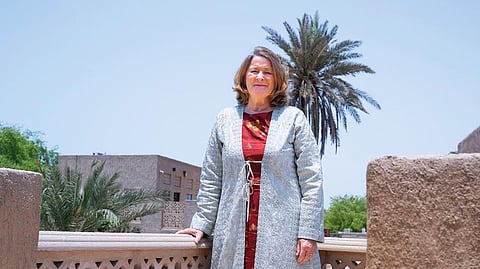Isobel Abulhoul: Dubai life in 1968 and the story of the Emirates LitFest
As the UAE celebrates its milestone Golden Jubilee this year, CEO and Trustee of the Emirates Literature Foundation Isobel Abulhoul tells Anand Raj OK about her event-filled five decades-plus life in the country
Last updated:
12 MIN READ

Alice in Wonderland
Heidi
Arabian Sands
Aladdin
Warhorse
5 books isobel would take away to an island
1984
King Lear
We Are Completely Besides Ourselves by Karen Fowler
Arabian Sands by Wilfred Thesiger
The Secret Garden
Sign up for the Daily Briefing
Get the latest news and updates straight to your inbox
Up Next



